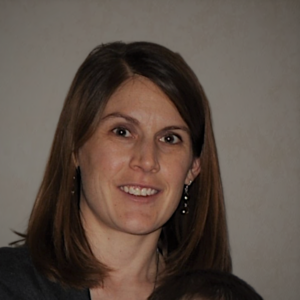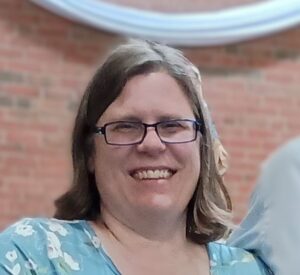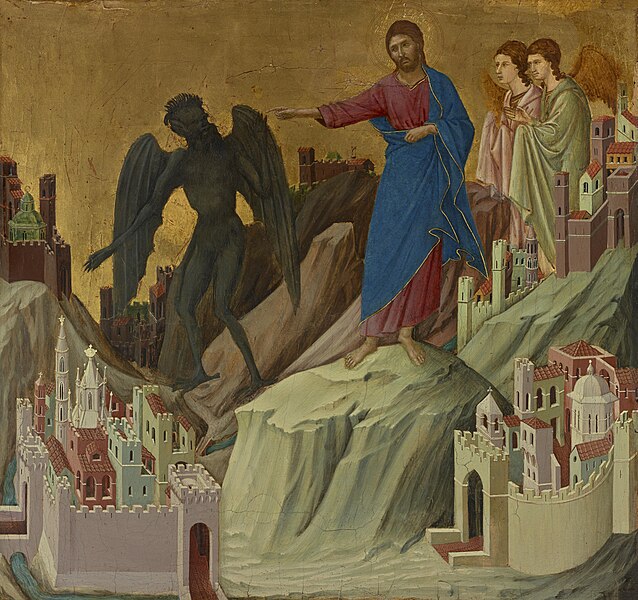Typically when we pray for healing, we pray for physical healing, or perhaps emotional or relational healing. We don’t tend to think so quickly of our need for spiritual healing. When the paralytic’s friends lowered him through the roof and placed him before Jesus, they were also seeking physical healing. However, Jesus’ first words to the paralyzed man were, “Child, your sins are forgiven.”
One could argue that Jesus said this because the Jews of that time believed there was a strong connection between a person’s sins and their ailments, that the first was the cause of the second. However, I sense there is a bigger significance to Jesus’ words than this, one which pertains to us also.
While Jesus certainly cares for us on a physical level, He knows the spiritual state of our souls is more important. We know from so many seemingly unanswered prayers that He often allows the continuation of physical or circumstantial pain because there is something else He is doing in it. He frequently uses our crosses to bring about a conversion or a surrender to Himself, to remind us how much we need Him, or to humble us.
He often uses times of helplessness or “paralysis” to show us that we are not as self-sufficient as we would like to believe we are. Though we may try to be strong, in reality we are little, weak, and sinful, in need of His mercy and forgiveness. Like the paralyzed man, we are invited to lay down before Jesus and surrender, to give up control and lie docile in His loving and gentle arms. When we do so, Jesus can truly do His work of healing.
Jesus’ healing work is not always obvious. It is often silent and hidden, like the forgiveness of this man’s sins. It is easy for us to question whether anything is actually happening, especially when we are looking for something we can see or feel.
The scribes and Pharisees questioned Jesus. What gave Him the authority to forgive this man’s sins? They were looking for a sign, for proof that Jesus could do what He had said. Jesus responded by healing the man of his paralysis as well. It was a compassionate move but was almost done as an afterthought, knowing He had already completed the more important work. However, since their hearts had not been converted, the physical healing only served to drive them further from the truth of who Jesus is.
I grapple frequently with my own physical and circumstantial crosses. It is difficult when prayers for healing or improvement seem to go unanswered. But when I look more closely, I can see God has been moving in each one, healing me spiritually and drawing me deeper into His love. Physical or circumstantial healing often takes place as well, but, when it does, it is frequently delayed or gradual so as to allow time for the more important spiritual work to be accomplished.
Normalmente cuando pedimos la sanación, pedimos la sanación física, o quizás emocional o relacional. No solemos pensar tan rápidamente en la necesidad de sanación espiritual. Cuando los amigos del paralítico lo bajaron por el techo y lo colocaron ante Jesús, también buscaban la sanación física. Sin embargo, las primeras palabras de Jesús al paralítico fueron: “Hijo, tus pecados te quedan perdonados”.
Se podría argumentar que Jesús dijo esto porque los judíos de esa época creían que había una fuerte conexión entre los pecados de una persona y sus dolencias, que los primeros eran la causa de los últimos. Sin embargo, siento que las palabras de Jesús tienen un significado mayor que este, que también se aplica a nosotros.
Mientras Jesús ciertamente se preocupa por nosotros a nivel físico, sabe que el estado espiritual de nuestras almas es lo más importante. Sabemos por tantas oraciones aparentemente no respondidas que a menudo permite la continuación del dolor físico o circunstancial porque hay algo más que está haciendo dentro de él. Muchas veces Jesús utiliza nuestras cruces para lograr una conversión o una entrega a Él, para recordarnos cuánto lo necesitamos o para humillarnos.
Con frecuencia, utiliza los momentos de impotencia o “parálisis” para mostrarnos que no somos tan autosuficientes como nos gustaría creer que somos. Aunque intentemos ser fuertes, en realidad somos pequeños, débiles y pecadores, necesitados de Su misericordia y perdón. Como el paralítico, estamos invitados a postrarnos ante Jesús y rendirnos, a renunciar al control y a acostarnos dócilmente en Sus brazos amorosos y tiernos. Cuando lo hacemos, Jesús puede realizar Su obra de sanación.
La obra de sanación de Jesús no siempre es obvia. A menudo es silenciosa y oculta, como el perdón de los pecados de este hombre. Es fácil para nosotros cuestionar si algo está sucediendo realmente, especialmente cuando buscamos algo que podemos ver o sentir.
Los escribas y fariseos cuestionaron a Jesús. ¿Qué le dio la autoridad para perdonar los pecados de este hombre? Ellos buscaban una señal, una prueba de que Jesús podía hacer lo que había dicho. Jesús respondió sanando al hombre también de su parálisis. Fue un gesto compasivo, pero casi se hizo como una ocurrencia de último momento, sabiendo que ya había completado la obra más importante. Sin embargo, como sus corazones no se habían convertido, la sanación física sólo sirvió para alejarlos aún más de la verdad de quién es Jesús.
Frecuentemente batallo con mis propias cruces físicas y circunstanciales. Es difícil cuando las peticiones por la sanación o la mejoría parecen quedar sin respuesta. Pero cuando miro más de cerca, puedo ver que Dios ha estado obrando dentro de cada uno de ellos, sanándome espiritualmente y atrayéndome más profundamente hacia Su amor. La sanación física o circunstancial también suele ocurrir, pero, cuando ocurre, con frecuencia se retrasa o es gradual para dar tiempo a que se realice la obra espiritual más importante.
 Kimberly Andrich writes from the perspective of having a hidden, chronic illness and experiencing a deep, continuous conversion through being yoked to Jesus in the day-to-day trials and joys of life. She is a wife, mother of 5, and daughter of the King. Kimberly also writes for Catholicmom.com and on fallingonhisgrace.substack.com.
Kimberly Andrich writes from the perspective of having a hidden, chronic illness and experiencing a deep, continuous conversion through being yoked to Jesus in the day-to-day trials and joys of life. She is a wife, mother of 5, and daughter of the King. Kimberly also writes for Catholicmom.com and on fallingonhisgrace.substack.com.
Feature Image Credit: Rollz International, unsplash.com/photos/a-woman-walking-with-a-walker-in-the-woods-T9Pthzn6G4A
The views and opinions expressed in the Inspiration Daily blog are solely those of the original authors and contributors. These views and opinions do not necessarily represent those of Diocesan, the Diocesan staff, or other contributors to this blog.


 Tami Urcia is a midwestern gal from a large Catholic family. As a young adulthood she was a missionary in Mexico, where she studied theology and philosophy. After returning stateside bilingual, she gained a variety of work experience, traveled extensively and finished her Bachelor’s Degree at Brescia University. She loves organizing and simplifying things, watching her children play sports, deep conversations with close family and friends and finding unique ways to brighten others’ day with Christ’s love. She works full time at Diocesan in the Software Department and manages the Inspiration Daily reflections. She also is a guest blogger on
Tami Urcia is a midwestern gal from a large Catholic family. As a young adulthood she was a missionary in Mexico, where she studied theology and philosophy. After returning stateside bilingual, she gained a variety of work experience, traveled extensively and finished her Bachelor’s Degree at Brescia University. She loves organizing and simplifying things, watching her children play sports, deep conversations with close family and friends and finding unique ways to brighten others’ day with Christ’s love. She works full time at Diocesan in the Software Department and manages the Inspiration Daily reflections. She also is a guest blogger on 
 Kate Taliaferro is an Air Force wife and mother. She is blessed to be able to homeschool, bake bread and fold endless piles of laundry. When not planning a school day, writing a blog post or cooking pasta, Kate can be found curled up with a book or working with some kind of fiber craft. Kate blogs at
Kate Taliaferro is an Air Force wife and mother. She is blessed to be able to homeschool, bake bread and fold endless piles of laundry. When not planning a school day, writing a blog post or cooking pasta, Kate can be found curled up with a book or working with some kind of fiber craft. Kate blogs at 
 Former NPS Park Ranger, Catholic educator, and Youth Minister, Melissa Lucca now spends her days evangelizing family and neighbors as a stay-at-home mom. She holds an MA in Theology from the Augustine Institute and pursues personal study in her spare time. Melissa loves Ignatian Spirituality, Mother Mary, and rock climbing. If you don’t hear her and her kiddo laughing at home, then they are probably out on an adventure!
Former NPS Park Ranger, Catholic educator, and Youth Minister, Melissa Lucca now spends her days evangelizing family and neighbors as a stay-at-home mom. She holds an MA in Theology from the Augustine Institute and pursues personal study in her spare time. Melissa loves Ignatian Spirituality, Mother Mary, and rock climbing. If you don’t hear her and her kiddo laughing at home, then they are probably out on an adventure!
 Christine Arata is a San Francisco, California native. She lives a few blocks away from the ocean and a park. She finds nature inspiring. Her cat brings her comfort. She loves being creative not only with her writing but with almost everything, including her home cooking. Her studies in the Catholic faith are ongoing. In 2019, when she discovered St. Hildegard of Bingen was underrepresented by Catholics, she found a purpose. Her latest website, St. Hildegard’s Wisdom features blog posts about all of that:
Christine Arata is a San Francisco, California native. She lives a few blocks away from the ocean and a park. She finds nature inspiring. Her cat brings her comfort. She loves being creative not only with her writing but with almost everything, including her home cooking. Her studies in the Catholic faith are ongoing. In 2019, when she discovered St. Hildegard of Bingen was underrepresented by Catholics, she found a purpose. Her latest website, St. Hildegard’s Wisdom features blog posts about all of that: 
 Tami Urcia grew up in Western Michigan, a middle child in a large Catholic family. She spent early young adulthood as a missionary in Mexico, studying theology and philosophy, then worked and traveled extensively before finishing her Bachelor’s Degree in Western Kentucky. She loves tackling projects, finding fun ways to keep her little ones occupied, quiet conversation with the hubby and finding unique ways to love. She works full time at Diocesan, is a guest blogger on
Tami Urcia grew up in Western Michigan, a middle child in a large Catholic family. She spent early young adulthood as a missionary in Mexico, studying theology and philosophy, then worked and traveled extensively before finishing her Bachelor’s Degree in Western Kentucky. She loves tackling projects, finding fun ways to keep her little ones occupied, quiet conversation with the hubby and finding unique ways to love. She works full time at Diocesan, is a guest blogger on 
 A lover of Jesus Christ, a wife, and a mother of five,
A lover of Jesus Christ, a wife, and a mother of five, 
 Deacon Dan Schneider is a retired general manager of industrial distributors. He and his wife Vicki have been married for over 50 years. They are the parents of eight children and thirty-one grandchildren. He has a degree in Family Life Education from Spring Arbor University. He was ordained a Permanent Deacon in 2002. He has a passion for working with engaged and married couples and his main ministry has been preparing couples for marriage.
Deacon Dan Schneider is a retired general manager of industrial distributors. He and his wife Vicki have been married for over 50 years. They are the parents of eight children and thirty-one grandchildren. He has a degree in Family Life Education from Spring Arbor University. He was ordained a Permanent Deacon in 2002. He has a passion for working with engaged and married couples and his main ministry has been preparing couples for marriage.
 Kathryn Mulderink, MA, is married to Robert, Station Manager for Holy Family Radio. Together they have seven children (including Father Rob), and eleven grandchildren. She is President of the local community of Secular Discalced Carmelites and has published five books and many articles. Over the last 30 years, she has worked as a teacher, headmistress, catechist, Pastoral Associate, and DRE, and as a writer and voice talent for Catholic Radio. Currently, she serves the Church by writing and speaking, and by collaborating with various parishes and to lead others to encounter Christ and engage their faith. Her website is
Kathryn Mulderink, MA, is married to Robert, Station Manager for Holy Family Radio. Together they have seven children (including Father Rob), and eleven grandchildren. She is President of the local community of Secular Discalced Carmelites and has published five books and many articles. Over the last 30 years, she has worked as a teacher, headmistress, catechist, Pastoral Associate, and DRE, and as a writer and voice talent for Catholic Radio. Currently, she serves the Church by writing and speaking, and by collaborating with various parishes and to lead others to encounter Christ and engage their faith. Her website is 
 Merridith Frediani loves words and is delighted by good sentences. She also loves Lake Michigan, dahlias, the first sip of hot coffee in the morning, millennials, and playing Sheepshead with her husband and three kids. She writes for Catholic Mom, Diocesan.com, and her local Catholic Herald. Her first book Draw Close to Jesus: A Woman’s Guide to Adoration is available at Our Sunday Visitor and Amazon. You can learn more at
Merridith Frediani loves words and is delighted by good sentences. She also loves Lake Michigan, dahlias, the first sip of hot coffee in the morning, millennials, and playing Sheepshead with her husband and three kids. She writes for Catholic Mom, Diocesan.com, and her local Catholic Herald. Her first book Draw Close to Jesus: A Woman’s Guide to Adoration is available at Our Sunday Visitor and Amazon. You can learn more at 